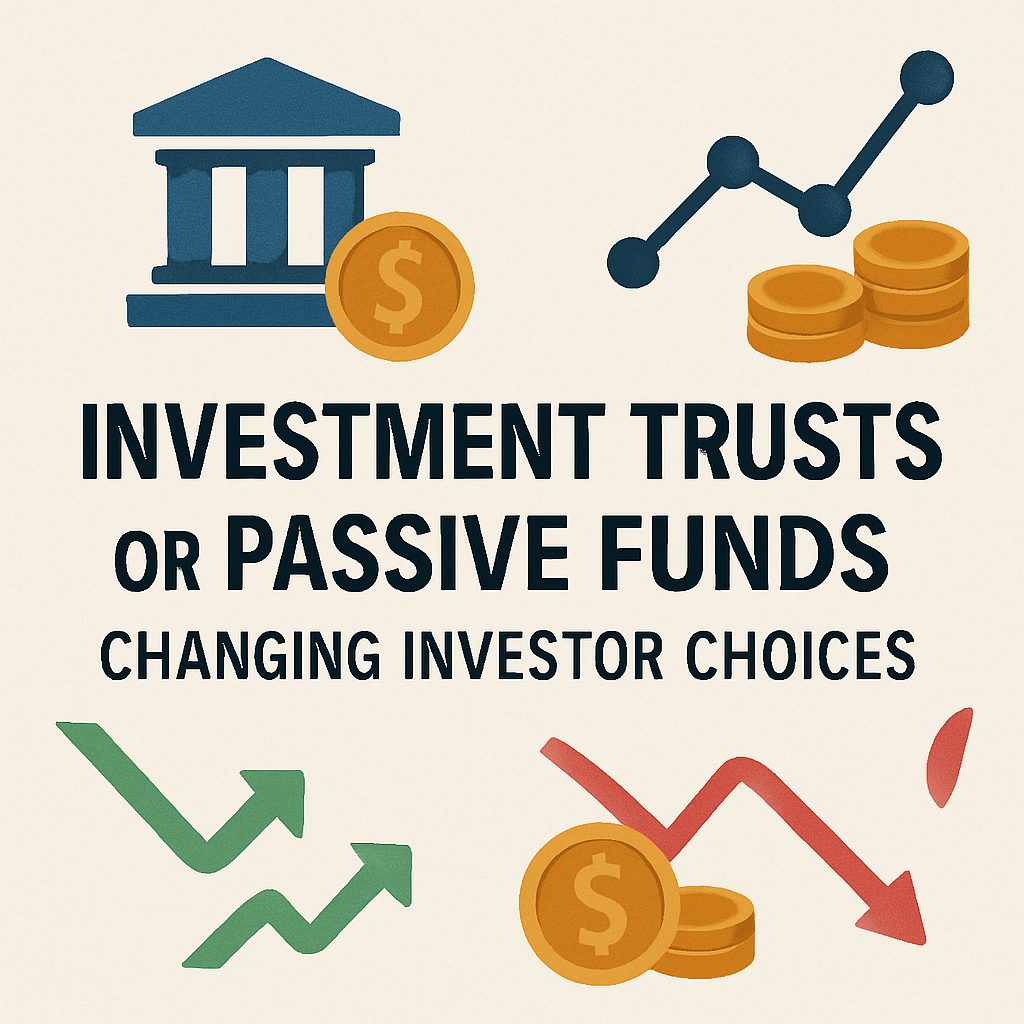Investment Trusts or Passive Funds: Changing Investor Choices

This week, a significant shift in investor behavior has come to light, highlighting the evolving landscape of managed investments. In particular, the emerging trends point to a decline in the popularity of investment trusts compared to passive funds, notably exchange-traded funds (ETFs).
Current Trends in Investment Funds
The recent Self-Invested Personal Pension (SIPP) report from Interactive Investor provides critical insights into these trends. For the first time, passive funds surpassed active funds as the preferred option for SIPP investors on the Interactive Investor platform, both for those accumulating wealth and those in the deaccumulation phase.
As indicated by Interactive Investor, investment trusts—historically a staple of investment portfolios—have seen dwindling interest. The report notes that allocations to ETFs are rising sharply as SIPP investors are increasingly drawn to their simplicity and significantly lower fees.
Profile of Popular Investment Choices
According to the latest data:
- Six out of the top ten funds favored by accumulators are now passive, with the Vanguard LifeStrategy fund family leading this charge.
- The remainder of the popular passive investment list consists primarily of global trackers.
This trend marks a considerable transformation from the landscape observed over a decade ago, illustrating a clear pivot toward passive investing methodologies.
The Case for Passive Investing
The argument for passive investing rests on several pillars: cost efficiency, diversification, and historical performance. Passive funds, particularly ETFs, generally have lower expense ratios than actively managed funds. According to Morningstar, the average expense ratio for active funds can be more than three times higher than that of passive alternatives. Furthermore, investment data indicates that actively managed funds often fail to outperform their benchmarks over time, further solidifying the case for passive strategies.
“Most individuals benefit from a passive investment approach. It provides a reliable and low-cost way to build wealth over the long term,” states an analyst from Fidelity Investments.
Challenges Facing Investment Trusts
The decline in investment trust allocations may be attributed to several factors:
- High Costs: Investment trusts often come with higher fees compared to passive funds, which can deter cost-conscious investors.
- Complexity: Many investors now prefer the straightforward nature of ETFs, which typically require less hands-on management.
- Performance Concerns: A consistent analysis shows that investment trusts, while potentially offering higher yields, may not deliver better returns compared to well-managed passive portfolios over the long run.
Future Outlook
While passive investment strategies are on the rise, this doesn’t signal the end for investment trusts. Some investors are drawn to their potential for higher yields and the diversification they provide. Furthermore, developments in technology and investment strategies may soon renew interest in these managed funds.
As competitive investors seek a variety of approaches to optimize their portfolios, investment trusts may serve as viable options alongside passive funds, satisfying those who prefer active engagement in their investment strategies.
The Shift to Digital and Modern Investment Platforms
Furthermore, it’s worth mentioning the changing landscape of how investors access these products. Digital platforms have made it easier for a broader audience to invest using funds they may have deemed complex or inaccessible in the past. Despite some technical challenges, such as outdated RSS feeds for content delivery, platforms are innovating to enhance user experiences and provide timely information.
Investors concerned with market dynamics and fund management strategies should take note of these trends and consider both passive and active options in their portfolios.
Conclusion
As we continue to assess the financial landscape, passive investment strategies appear to gain traction. While investment trusts still hold their place in the investment realm, the prioritization of cost and simplicity by today’s investors is reshaping how wealth is built for the long term. Happy investing!